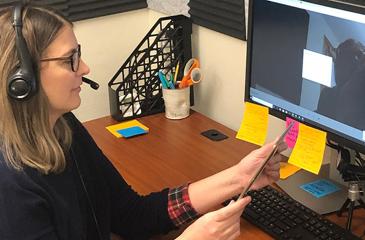New Support for Tele-Outreach
The Richard M. Schulze Family Foundation has awarded a $2 million, multi-year grant to the University of Minnesota Foundation to support tele-outreach services through the Masonic Institute for the Developing Brain. The University’s Institute on Community Integration, as a MIDB partner, will lead the creation of the MIDB TeleOutreach Center over the next three years, bringing together clinical pediatric providers and developmental specialists to reach underserved communities around the state with convenient and cost-effective services.
MIDB is an interdisciplinary center dedicated to supporting healthy brain development and intervening early to address mental health and neurodevelopmental challenges such as autism, learning disabilities, substance abuse disorders, and other neurocognitive disabilities.
“This forward-thinking gift provides a critical foundation for expanding intervention services throughout Minnesota for many years to come,” said ICI Director Amy Hewitt.
Tele-outreach refers to a broad set of training, technical assistance, and intervention services delivered electronically to children, families, and professionals in the field. The Center will be housed in the new MIDB facility, now under construction at 2025 East River Parkway, Minneapolis.
“We’re leveraging technology and innovation to increase our reach and serve more children with neurodevelopmental disorders and behavioral health needs statewide,” said Jessica Simacek, director of the TeleOutreach Center and manager of ICI’s Telehealth Lab. “We’re building sustainable pathways and resources so more children and families in different regions of the state can access very high-quality, interdisciplinary intervention.”
Using secure, remote video communication technology, leading specialists will provide assessment, intervention, and support for young people with mental health and neurodevelopmental disabilities. The Center will also conduct remote training and coaching for health, education, and human services professionals, as well as families. The technology will allow investigators to conduct innovative research, collaborate with each other, and host community forums for creating better outcomes for children, young people, and their families.
“It’s going to be a great, one-stop shop,” said Adele Dimian, an ICI research associate also working on the project. “It’s exciting to collaborate across different fields as the University broadens its work in the field of autism and other disorders.”
As children with disabilities and their families face additional challenges due to the pandemic, the new facility will help improve access to intervention, Simacek said.
“We’re going to now be able to scale up a lot of promising work to address those barriers,” she said.
This story was originally published on Dec. 15, 2020 by the Institute on Community Integration.



